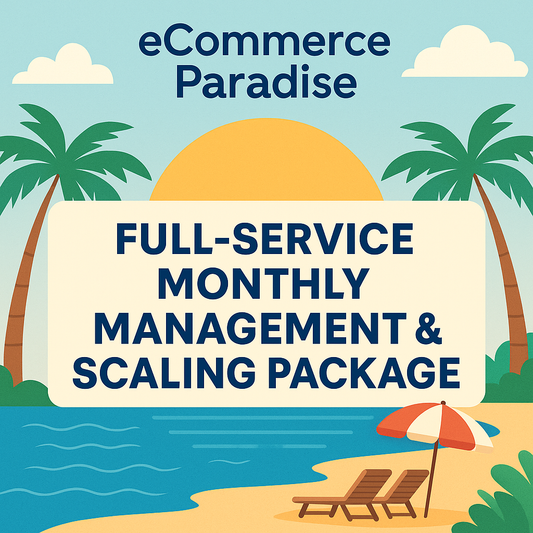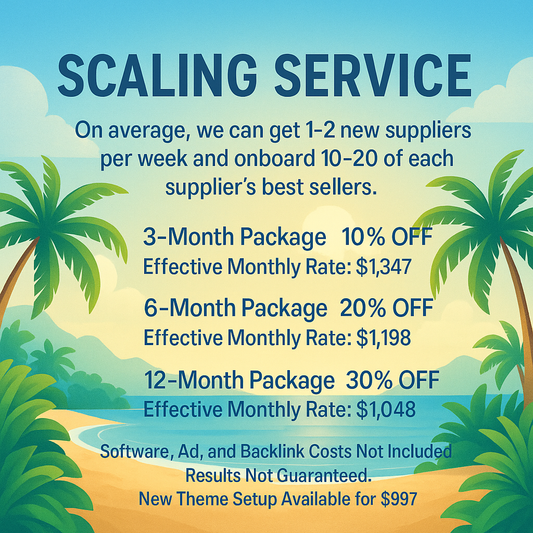
Best Podcast Hosting: Top Platforms for Creators

Choosing the right podcast hosting service can deeply impact a creator's journey. The best podcast hosting providers offer user-friendly tools, reliable distribution, and excellent analytics to help podcasters grow their audience. With many options available, understanding what each service provides can make a big difference.
A strong podcast hosting platform should cater to various needs, from beginners to advanced users. Features like storage space, monetization options, and audience engagement tools are essential for podcasters who want to succeed in a competitive market.
Finding the right fit is crucial for producing quality content and reaching listeners effectively. Podcasters should consider their goals and choose a hosting service that aligns with their vision.
Understanding Podcast Hosting
Podcast hosting is essential for anyone looking to start or maintain a podcast. It involves storing podcast episodes and distributing them to various platforms. The service plays a key role in ensuring that listeners can access the content easily and reliably.
What Is Podcast Hosting?
Podcast hosting refers to a service that stores audio files and provides a way to distribute them. This includes managing RSS feeds, which are crucial for getting episodes to platforms like Apple Podcasts and Spotify.
Most hosting platforms offer features such as:
- Storage Space: Enough room for multiple episodes and shows.
- Bandwidth: Important for handling listener traffic.
- Analytics: Provides data on downloads and listener habits.
Popular hosting services include Buzzsprout, Podbean, and Libsyn. Each offers unique features and pricing plans to meet different needs.
Importance of Reliable Podcast Hosting
Reliable podcast hosting is vital for a successful show. When a host is dependable, it ensures that episodes are always available for listeners.
Key aspects to consider include:
- Uptime: A good host guarantees minimal downtime.
- Customer Support: Quick support helps resolve issues effectively.
- Ease of Use: Intuitive interfaces make uploading episodes easy for creators.
Selecting the right host can impact the show’s growth. A reliable service helps maintain audience trust and engagement, making it essential for podcasters.
Evaluating Podcast Hosting Services
Choosing a podcast hosting service involves looking at several important factors. This decision affects how a podcast is shared, the audience's experience, and the creator's ability to grow their brand.
Factors to Consider
Several factors matter when picking a podcast hosting service.
- Storage and Bandwidth: Look for services that offer enough storage for episodes and flexible bandwidth to handle listener traffic.
- Analytics: Good hosting platforms provide analytics tools. Creators can track downloads and understand their audience better.
- Distribution: It is crucial to select a host that can easily distribute episodes to platforms like Apple Podcasts, Spotify, and others.
- Customer Support: 24/7 support can help when technical issues arise. A reliable support team is key for troubleshooting.
- Pricing: Compare pricing models, as some podcasts may start for free but have costs as they grow.
Understanding these factors will help creators find the best hosting solution for their needs.
Customization and Branding
Customization can make a podcast stand out. Look for hosts that offer options for unique branding.
- Website Integration: Some platforms allow users to build and customize their own websites. This helps creators establish their brand online.
- Custom RSS Feeds: Creating custom RSS feeds provides control over how the podcast is distributed.
- Monetization Options: Some hosts offer ways to earn money through ads or listener donations, which can help build an eCommerce element.
Choosing a host that provides these customization options is important for future growth and brand identity.
Top Podcast Hosting Platforms
Several podcast hosting platforms stand out for their features and benefits. Each service offers unique tools to help podcasters grow their audience and streamline the publishing process.
Podbean

Podbean is a popular choice for podcasters. It provides unlimited hosting with a user-friendly interface. Users can publish their episodes easily and manage their content through a dashboard.
Podbean also offers a media player that can be embedded on websites. This tool makes it simple to share episodes on social media. The platform supports monetization through ads and listener support.
Podcasters can access detailed analytics to track audience engagement and downloads. These insights help users understand what content resonates with listeners. Overall, Podbean is effective for both beginners and seasoned podcasters.
Buzzsprout

Buzzsprout is known for its simplicity and effectiveness. The platform focuses on helping podcasters efficiently distribute their shows. Users can publish episodes to major directories like Apple Podcasts and Spotify with just a few clicks.
One standout feature is its user-friendly dashboard. It allows creators to view analytics, including listener trends and geographic data. Buzzsprout also offers the addition of episode transcriptions, making content more accessible.
For those looking to grow their podcast, Buzzsprout provides a podcast website and social sharing tools. It also includes the option for podcasters to run ads to generate revenue. This service balances ease of use with powerful features.
Transistor

Transistor is a robust platform for businesses and independent creators alike. It offers powerful hosting with unlimited uploads and team collaboration features. This flexibility is perfect for teams working on podcasts together.
One of the key advantages of Transistor is its professional analytics tools. Users can see who their listeners are and how they engage with content. This information is vital for tailoring podcasts to audience preferences.
Transistor also stands out with its customizable podcast website. Creators can easily design a site that reflects their brand. Additionally, Transistor supports advanced marketing features, such as email newsletters for audience engagement.
Monetizing Your Podcast
Monetizing a podcast can create a steady income stream for podcasters. There are several effective methods to earn money, including high ticket dropshipping, sponsorships, and merchandising. Each method has unique benefits and considerations.
High Ticket Dropshipping
High ticket dropshipping involves selling expensive products without holding any inventory. Podcasters can partner with companies offering high-value items. They promote these products during episodes or online.
This method can generate significant profits. For example, if a podcaster sells a product worth $1,000 and earns a 20% commission, they make $200 per sale.
To succeed, the host should choose products that align with their content and audience's interests. Focusing on quality items helps build trust with listeners. This strategy can be a great way to monetize without upfront costs.
Sponsorships and Advertising
Sponsorships and advertising are popular ways to earn money from podcasts. Brands pay podcasters to mention their products or services. The amount paid usually depends on the audience size and engagement.
Hosts can choose between direct sponsorships or programmatic ads. Direct deals involve negotiating with brands, while programmatic ads use software to fill ad spots.
Podcasters should select sponsors that fit their content and audience. This connection ensures that ads remain relevant and engaging, enhancing listener experience.
Merchandising and Affiliate Marketing
Selling merchandise, like T-shirts or mugs, creates an extra income source. Fans enjoy supporting their favorite shows. Successful merch can become a brand itself, boosting the podcast's visibility.
Affiliate marketing is another great approach. Podcasters can promote products and earn a commission for every sale made through their referral links.
Choosing products that match the podcast's theme is crucial. When listeners trust the host, they are more likely to make purchases based on recommendations. Effective promotion is key to success in this area.
Integrating Podcast Hosting With Ecommerce
Integrating podcast hosting with ecommerce can create strong connections between brands and their audience. This approach enhances sales and boosts brand visibility through unique strategies.
Seamless Ecommerce Integrations
Many podcast hosting platforms offer integrations with popular ecommerce tools like Shopify and WooCommerce. This allows podcasters to connect their podcasts directly to their online stores.
By embedding shopping links in episode descriptions or show notes, listeners can easily find and purchase products mentioned in the podcast. This streamlines the shopping experience and turns casual listeners into customers.
Additionally, some platforms provide features that allow podcasters to sell merchandise directly through their episodes. This capability enhances user engagement and increases revenue.
Enhancing Online Sales Through Podcasting
Podcasts can influence listeners’ purchasing decisions. When creators talk about their products or services, they build trust and credibility. This trust often leads to increased online sales.
Using targeted call-to-actions is essential. For instance, podcasters can encourage listeners to visit their website or use a promo code in a specific episode.
These strategies help drive traffic to ecommerce sites. As a result, podcasters can measure how effective their episodes are in generating sales.
Leveraging Podcasts for Brand Growth
Podcasts offer a platform for brands to share their stories and connect with audiences. This connection fosters brand loyalty.
Creating unique content around products can pique listener interest. For example, interviews with satisfied customers or industry experts can highlight product features and benefits.
Promoting social media channels during podcasts can enhance audience interaction. Engaged listeners are more likely to become loyal customers, which supports brand growth.
Using consistent messaging across podcasts and ecommerce will further strengthen the brand's identity. This consistency helps convert casual listeners into dedicated followers.
Technical Considerations
When choosing a podcast hosting service, there are important technical aspects to evaluate. These factors can significantly impact the podcast's reach and performance.
Hosting Storage and Bandwidth
Storage refers to how much audio content can be uploaded. Most hosts offer various plans with different storage limits. A higher storage option is vital for podcasters with multiple episodes or longer shows.
Bandwidth is the amount of data transferred when listeners stream or download episodes. Insufficient bandwidth can lead to slow loading times or errors. Look for hosts that provide unlimited or high bandwidth to accommodate growth.
Here’s a simple comparison table to consider:
| Feature | Importance |
|---|---|
| Storage Limits | Determines how much content can be stored |
| Bandwidth | Affects listeners’ access and experience |
Understanding RSS Feeds
RSS feeds are crucial for distributing podcast episodes. They allow directories and platforms to automatically access new episodes.
A well-structured RSS feed ensures that episodes are delivered correctly to services like Apple Podcasts or Spotify. Podcasters should check that their host provides customizable RSS feeds. This feature allows for better branding by modifying the feed link.
Errors in the RSS feed can result in missed episodes or disruption in service. Regularly testing the feed will help catch issues early.
Analytics and Reporting
Analytics provide insights into podcast performance. Many hosting services offer detailed statistics showing how many people listen, download, or share episodes.
Important metrics to watch include listener demographics, playback duration, and popular episodes. Using this data can help in making informed content decisions.
Podcasters should choose a host that provides clear and easy-to-understand reports. This information can guide marketing strategies and improve audience engagement.
Building Your Podcasting Strategy
Creating a successful podcast requires more than just recording audio. It involves careful planning, engaging the audience, and maintaining a consistent schedule. These elements help build a strong podcasting strategy.
Content Creation and Planning
Successful podcasts start with a clear plan. This includes defining the podcast's theme, target audience, and episode format.
- Identify Topics: Choose topics that interest the audience and reflect the host's expertise.
- Create a Content Calendar: Planning episodes in advance helps ensure a steady flow of content. A calendar can include recording dates, release dates, and topics.
- Script Writing: Some hosts prefer to script their episodes, while others might outline key points.
By preparing content in advance, podcasters can ensure each episode is engaging and relevant.
Audience Engagement and Growth
Connecting with the audience is crucial for podcast success. Engaging listeners can lead to increased loyalty and growth.
- Social Media Interaction: Hosts should promote episodes on social media and respond to comments. This builds a community around the podcast.
- Listener Feedback: Encouraging feedback through surveys or direct messages helps podcasters understand what works.
- Collaborations: Working with other podcasters can introduce new audiences and create valuable content.
Active engagement not only retains listeners but also attracts new ones.
Consistency and Scheduling
Regular posting is important for audience retention. A consistent schedule helps listeners know when to expect new content.
- Set a Release Schedule: Decide on a weekly, bi-weekly, or monthly schedule and stick to it.
- Production Workflow: Develop a workflow that includes recording, editing, and distributing episodes. This helps streamline the process.
- Stay Committed: Consistency builds trust. If listeners know when to expect new episodes, they are more likely to return.
By keeping a regular schedule, podcasters can maintain interest and grow their listener base.
Promotion and Distribution
Effective promotion and distribution are crucial for growing a podcast audience. Using social media, SEO, and directory listings can help boost visibility and reach more listeners. Collaborations can also provide valuable exposure.
Maximizing Reach Through Social Media
Social media platforms are powerful tools for promoting a podcast. Posting episode links, behind-the-scenes content, and engaging visuals can attract more listeners.
Tips for Effective Promotion:
- Choose the Right Platforms: Focus on places where the target audience is active, like Instagram, Twitter, or Facebook.
- Engage with Followers: Respond to comments and messages to build a loyal community.
- Use Hashtags: Include relevant hashtags to extend the reach of posts.
Consistency is key. Regularly posting updates can keep listeners informed and engaged.
Leveraging SEO and Content Marketing
Search engine optimization (SEO) helps podcasts show up in search results. Using relevant keywords in episode titles and descriptions can improve visibility.
Steps to Implement SEO:
- Research Keywords: Identify popular search terms related to the podcast topic.
- Optimize Episode Titles: Use clear and descriptive titles that incorporate these keywords.
- Create Supporting Content: Write blog posts or articles that expand on podcast episodes to attract organic traffic.
Content marketing can also be beneficial. Sharing valuable information encourages listeners to engage further.
Directory Listings and Collaborations
Getting listed in podcast directories is essential for distribution. Popular directories like Apple Podcasts, Spotify, and Google Podcasts increase discoverability.
Benefits of Directory Listings:
- Wider Audience: Each directory offers unique listeners.
- Searchability: People often browse these platforms for new content.
Collaborating with other podcasters can amplify exposure. They can cross-promote episodes, allowing both parties to reach new audiences. It’s also a chance to share ideas and best practices, enriching the podcast experience for everyone involved.
Conclusion
The decision on the best podcast hosting service can impact a creator’s reach and success. Several key points will help guide this choice. It is important to know the main features and trends shaping the podcasting landscape.
Recap of Key Takeaways
Choosing a podcast host requires careful consideration. Key features like storage limits, analytics, and monetization options are crucial.
- Storage Limits: Ensure the host offers enough space for episodes.
- Analytics Tools: These help track listener engagement.
- Monetization: Look for options like ads or listener donations.
Different hosts excel in various areas, so it’s vital to match the host’s strengths to the creator’s needs. This choice can help in building an audience and improving overall performance.
Future Trends in Podcast Hosting
Podcasting continues to expand, and new trends are emerging.
- Enhanced Analytics: More in-depth data will guide creators in making informed decisions.
- Integration with Social Media: Hosts will likely offer better linking options to social platforms.
- Improved Monetization: New methods for earning money from podcasts are being developed.
These trends will shape how podcasts are created and distributed. Staying informed about these changes will help creators adapt successfully.


















